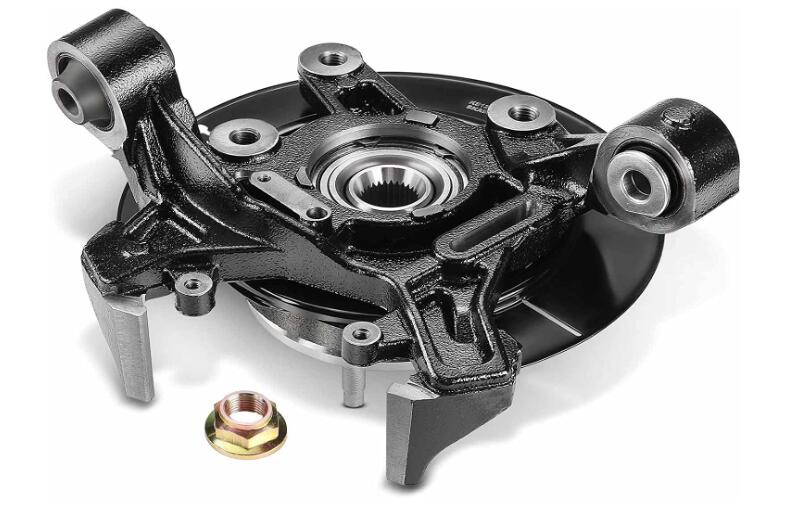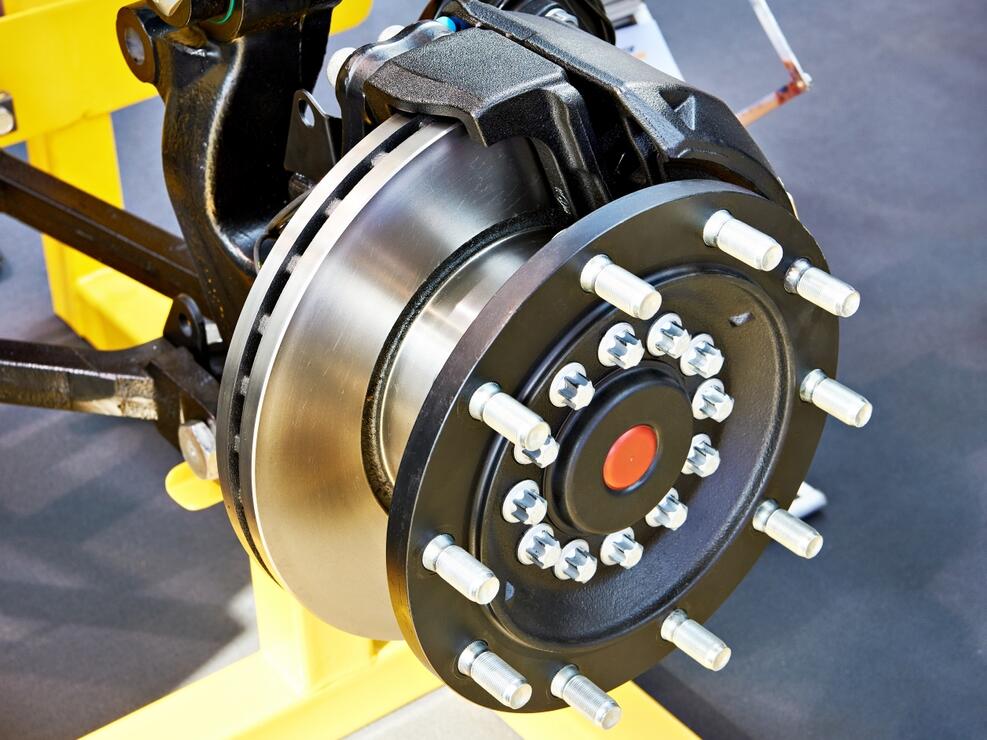Introduction
In automotive component manufacturing, industry certifications offer more credibility. They represent an acknowledgment of quality, safety, and reliability.
For wheel bearings manufacturers, these certifications guarantee that their products meet or exceed industry standards.
This article explores the importance of these certifications and how they impact manufacturers and end users.
Part 1: Quality Assurance and Consumer Trust
The first and perhaps most significant reason why certifications matter is related to quality assurance and consumer trust.
An industry certification guarantees that a manufacturer adheres to a particular set of standards or criteria related to the quality of their products.
When consumers see that a manufacturer is certified, they can feel confident that the products they are purchasing are reliable and safe.
From a manufacturer’s perspective, acquiring industry certifications can significantly enhance their reputation.
A certified manufacturer is seen as trustworthy and committed to delivering high-quality products.
This can translate into increased sales, as consumers are often willing to pay a premium for products they perceive to be of higher quality.
Furthermore, being certified can also provide a competitive edge.
In a saturated market, manufacturers that have industry certifications can distinguish themselves from competitors.
This can be particularly crucial for manufacturers just entering the market and looking for ways to establish themselves.
Part 2: Compliance with Regulations
Industry certifications are not just a marketing tool, they are also an indication of a manufacturer’s compliance with local, regional, or international regulations.
These regulations are designed to ensure automotive components’ safety, reliability, and efficiency.
In many regions, certifications are a legal requirement for manufacturers.
With these certifications, manufacturers may be allowed to operate, or their products may be allowed to be sold.
Consequently, acquiring industry certifications benefits a manufacturer and can also be essential for survival.
Manufacturers that operate or sell products in multiple regions may need to acquire multiple certifications.
Each region can have its own set of regulations and standards, and manufacturers must ensure they comply.
Part 3: Standardization and Interoperability
Industry certifications also promote standardization and interoperability.
Automotive components, like wheel bearings, must fit and function properly with various other vehicle parts.
Manufacturers must adhere to specific dimensions, materials, and design principles to ensure this.
Manufacturers ensure their products can be used across various vehicles by adhering to industry certifications.
This increases the market potential of their products and reduces the chances of compatibility issues, which can lead to product recalls or warranty claims.
Standardization also facilitates the repair and maintenance of vehicles.
Mechanics and service centers rely on standardized parts to quickly and efficiently repair vehicles.
If a manufacturer’s wheel bearings are certified, service centers can trust that they will fit correctly and perform as expected.
Part 4: Continuous Improvement and Innovation
Finally, industry certifications can drive continuous improvement and innovation.
To maintain their certifications, manufacturers must continuously monitor and improve their production processes.
This often leads to the developing of new techniques and technologies that can improve the quality and efficiency of their products.
Moreover, industry certifications often require manufacturers to keep up with the latest advancements in their field.
As new materials, designs, or technologies emerge, manufacturers may need to incorporate them into their products to stay certified.
This can result in more advanced and high-performing products, which benefits both the manufacturers and the consumers.
Part 5: Facilitating Global Trade
Manufacturers often cater to a global customer base in today’s interconnected world.
Having the necessary industry certifications can facilitate more accessible access to international markets.
A wheel bearing manufacturer with internationally recognized certifications can sell its products worldwide with fewer obstacles, as it meets various countries’ stringent quality and safety requirements.
These certifications often serve as a universal language of trust and quality that transcends national borders.
They assure foreign buyers that the products they import are of a certain standard.
Thus, certifications eliminate the need for buyers to conduct extensive quality checks or audits themselves, saving them time and resources.
This can make certified manufacturers more appealing to international customers, ultimately increasing business opportunities and market share.
Additionally, certifications can simplify the process of dealing with international customs.
For many countries, demonstrating that imported goods meet a particular standard is a prerequisite for clearing customs.
Certified goods are often fast-tracked through this process, resulting in shorter delivery times and fewer bureaucratic hurdles.
This ease in global trade operations not only improves customer satisfaction but also enhances the competitiveness of manufacturers on the international stage.
Part 6: Environmental Compliance and Sustainability
Industry certifications are increasingly reflecting an increased emphasis on environmental compliance and sustainability.
As global attention shifts towards environmental conservation, industries are pressured to minimize their ecological footprint.
Wheel bearing manufacturers are no exception to this trend.
Certifications can demonstrate a manufacturer’s commitment to sustainable practices, such as efficient use of resources, recycling, and waste management.
For instance, ISO 14001, an internationally accepted standard that sets out the criteria for an environmental management system, helps organizations, including wheel bearing manufacturers, improve their environmental performance through more efficient use of resources and waste reduction.
By obtaining certifications that validate their environmental efforts, manufacturers can show their commitment to sustainable practices, enhancing their corporate image and reputation.
More consumers are gravitating toward companies that prioritize sustainability.
A manufacturer with the proper certifications can appeal to this growing market segment, potentially driving sales and increasing brand loyalty.
Part 7: Encouraging Continuous Improvement
Beyond the immediate benefits of certifications, they also stimulate an ongoing commitment to continuous improvement.
As standards evolve and new certifications are developed, manufacturers are challenged to keep up.
This involves constant research, development, and refinement of their products and processes.
In this way, certifications help to drive innovation in the wheel bearing manufacturing industry.
The continuous improvement process involves regular audits to ensure compliance with the certification standards.
These audits provide an opportunity for manufacturers to identify areas for improvement and implement changes.
It fosters a culture of excellence where employees are motivated to do better and learn more.
Moreover, it’s common for industry certifications to require manufacturers to demonstrate their ongoing commitment to training and skill development.
This can lead to upskilling of employees, making them more competent and enhancing their job satisfaction.
In an industry where precision, accuracy, and technical know-how are paramount, having a highly skilled workforce can significantly improve the quality of the wheel bearings produced and, by extension, customer satisfaction.
Part 8: Risk Management and Customer Confidence
Industry certifications also serve a critical role in risk management.
They demonstrate that a manufacturer has taken steps to identify and mitigate potential risks associated with their products or processes.
This might include quality, safety, environmental impact, or business continuity risks.
By achieving certification, a manufacturer sends a clear message to stakeholders that they take these risks seriously and have plans to manage them.
This risk management aspect of certifications can give customers a great deal of confidence.
Trust is paramount in the wheel-bearing industry, where product failures can have serious consequences.
When customers see that a manufacturer is certified, they can have peace of mind knowing they are purchasing from a company that prioritizes safety and quality.
In addition, certifications can also lead to lower insurance premiums, as they demonstrate a company’s commitment to minimizing risk.
This can represent significant cost savings for manufacturers.
Conclusion
The importance of industry certifications in the wheel bearing industry cannot be overstated.
They serve as a testament to the quality, stimulate innovation, facilitate global trade, reflect a commitment to environmental sustainability, encourage continuous improvement, and support robust risk management.
Given the rigorous process, investing in these certifications may seem daunting for some manufacturers.
However, the benefits they provide far outweigh the investment.
Manufacturers who obtain and maintain these certifications differentiate themselves in an increasingly competitive marketplace, build trust with their customers, and position themselves for long-term success.
As standards evolve and the industry moves forward, manufacturers who stay ahead of the curve and keep their certifications up-to-date will be best positioned to thrive in the ever-evolving landscape of the wheel-bearing manufacturing industry.




